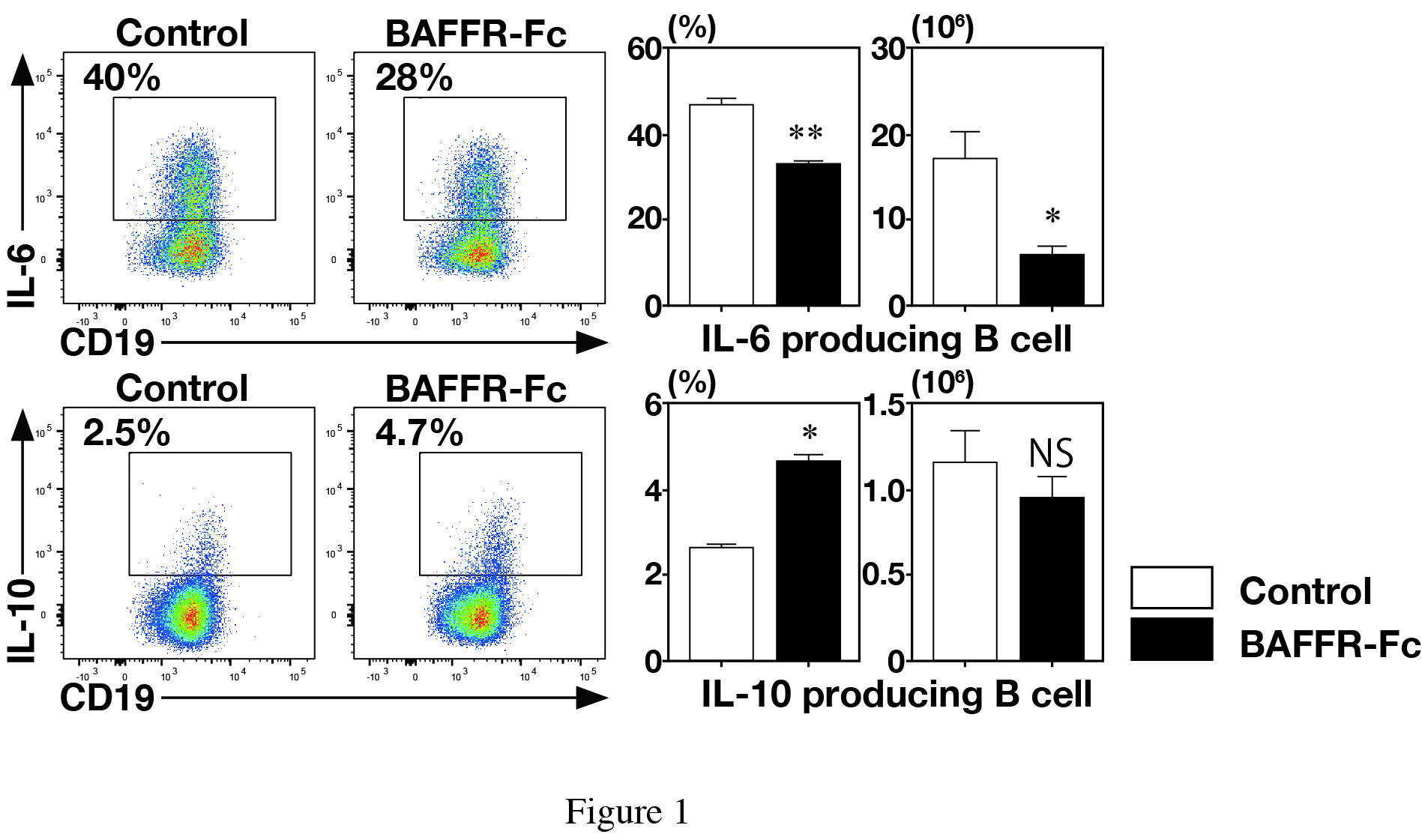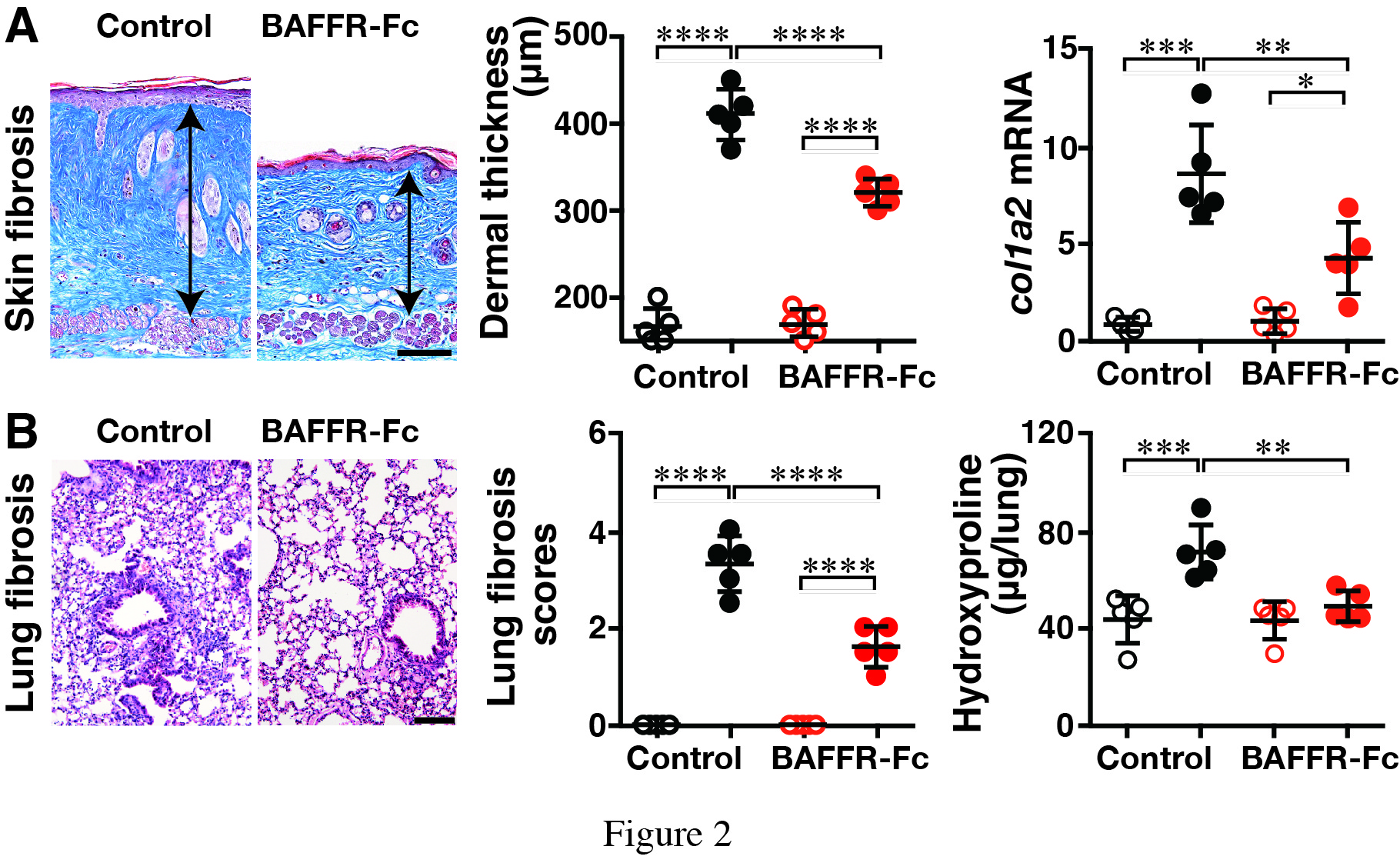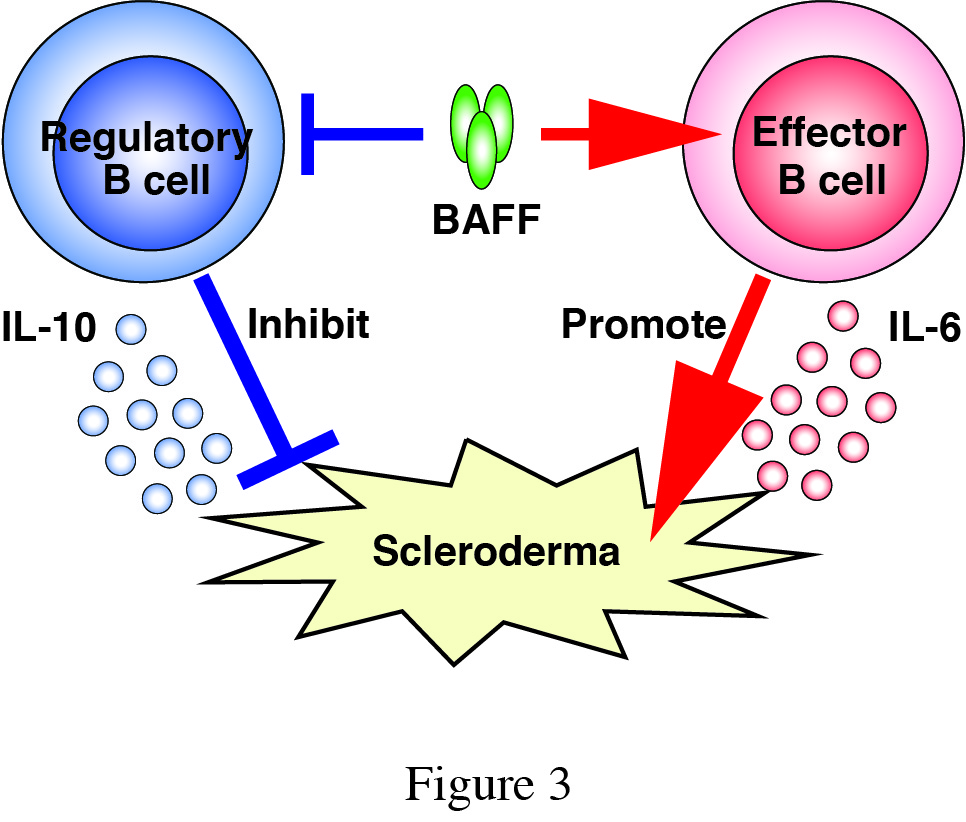Session Information
Date: Sunday, October 21, 2018
Title: Systemic Sclerosis and Related Disorders – Basic Science Poster I
Session Type: ACR Poster Session A
Session Time: 9:00AM-11:00AM
Background/Purpose: Systemic sclerosis (SSc) is an autoimmune disease characterized by skin and lung fibrosis. Over 90% of patients with SSc are positive for autoantibodies. In addition, serum B cell activating factor (BAFF) level is correlated with SSc severity and activity. Thus, B cells are considered to play a pathogenic role in SSc. However, there are two opposing subsets: regulatory B cells (Bregs) and effector B cells (Beffs). IL-10-producing Bregs negatively regulate the immune response, while IL-6-producing Beffs positively regulate. Therefore, a protocol that selectively depletes Beffs would represent a potent therapy for SSc. The aim of this study was to investigate the roles of Bregs and Beffs in SSc, and to provide a scientific basis for developing a new treatment strategy targeting B cells.
Methods: The bleomycin-induced scleroderma model was induced in the mice with a B cell-specific deficiency in IL-6 or IL-10. We also examined whether BAFF regulates cytokine-producing B cells and its effects on scleroderma model.
Results: Serum IL-6 levels gradually increased with the development of fibrosis in bleomycin-induced scleroderma mice, while serum IL-10 levels did not. IL-6-producing Beffs increased in Spleen and the inflamed skin of scleroderma model. The skin and lung fibrosis was attenuated in B cell-specific IL-6-deficient mice, whereas B cell-specific IL-10-deficient mice showed more severe fibrosis. BAFF stimulation increased Beffs and decreased Bregs. By contrast, BAFF antagonist (BAFFR-Fc) increased Bregs and decreased Beffs (Fig 1). Furthermore, BAFF antagonist attenuated skin and lung fibrosis in scleroderma model via modulating the regulatory and effector B-cell balance (Fig 2).
Conclusion: The current study indicates that Beffs play a pathogenic role in scleroderma model while Bregs play a protective role (Fig 3). BAFF inhibition is a potential therapeutic strategy for SSc via alteration of B cell balance.
To cite this abstract in AMA style:
Matsushita T, Kobayashi T, Hamaguchi Y, Hasegawa M, Fujimoto M, Takehara K. BAFF Inhibition Attenuates Fibrosis in Bleomycin-Induced Scleroderma Model Via Modulating the Regulatory and Effector B-Cell Balance [abstract]. Arthritis Rheumatol. 2018; 70 (suppl 9). https://acrabstracts.org/abstract/baff-inhibition-attenuates-fibrosis-in-bleomycin-induced-scleroderma-model-via-modulating-the-regulatory-and-effector-b-cell-balance/. Accessed .« Back to 2018 ACR/ARHP Annual Meeting
ACR Meeting Abstracts - https://acrabstracts.org/abstract/baff-inhibition-attenuates-fibrosis-in-bleomycin-induced-scleroderma-model-via-modulating-the-regulatory-and-effector-b-cell-balance/



